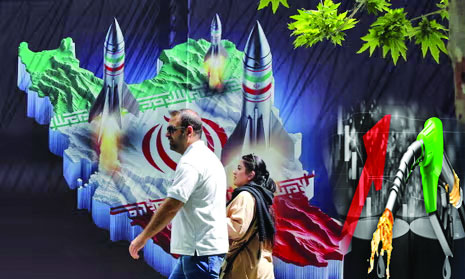Escalating conflict in Middle East could in crease inflation: WB
Industry Desk: If the ongoing conflict in the Middle East countries increases, the supply of fuel oil, natural gas, fertilizers, food and other products may be interrupted. This may increase the price of these products in the international market. As a result, the global inflation rate may rise again.
If the conflict in the region escalates further, the price of fuel oil may increase to $92 per barrel. If the conflict causes serious supply disruptions, the price of fuel could exceed $100 per barrel. Then the global inflation rate may increase by one percent.
This forecast is given in the World Bank’s ‘Commodity Markets Outlook, April 2024’ report published on Thursday night. The report was published from the headquarters of the World Bank in Washington, the capital of the United States.
In the report, the World Bank said, if the ongoing conflict in the countries of the Middle East does not expand, the global price of almost all types of products, including fuel oil, will decrease a little more. But it will be more than the years before Corona. If geopolitical tension does not increase, the global commodity prices may decrease by an average of 3 percent this year and an average of 4 percent in 2025.
It said that about 20 percent of the Middle East’s liquid fuel is transported through the Strait of Hormuz. If the conflict increases in the countries of the Middle East, the transportation of goods through this channel may be interrupted. Depending on the type of disruption, global supply of goods may be disrupted,
as well as their prices; Which could fuel the global inflation rate. This could increase the global inflation rate up to one percent. The current downward trend in inflation globally will be hampered. At the same time, central banks’ plans to cut interest rates may also be hampered.
According to the report, the price of oil rose from 82 to 91 dollars per barrel this month as the conflict in the Middle East escalated. If the conflict does not expand, the price of fuel oil may stay in the range of $84 this year. Next year its price may drop to $79. And if the conflict escalates, fuel supplies will be disrupted. Then the price of fuel oil may rise to $92 per barrel. If fuel transportation through the Strait of Hormuz is further disrupted, the price of a barrel may exceed $100. At the same time, prices of natural gas, fertilizers and food may increase. Disruption of LNG supply would also increase the cost of fertilizer substantially, possibly increasing food prices.
It should be noted that there is tension in the Middle East countries due to Israel’s continued attack on Palestine. Lebanon and Iran are involved with it. Due to this conflict, two oil tankers have been attacked in the Strait of Hormuz in the Gulf of Oman. The United States blamed Iran for this. Iran has denied it. The Strait of Hormuz is one of the easiest sea routes for exchanging goods from Middle Eastern countries. Arab countries are on one side of this channel and Iran is on the other side.
According to the World Bank report, if the conflict in the Middle East is limited, overall food prices in the world may decrease slightly. Among them, the price of food materials alone may decrease by 6 percent this year and 4 percent next year. Fertilizer prices may fall by 22 percent this year and 6 percent next year. Central banks can gradually reduce the interest rate of loans if the commodity prices go down. However, even if the price of goods decreases, the price of goods may be 38 percent higher than the five years before the corona epidemic.
According to the report, commodity prices are falling globally despite the conflict in the Middle East. Along with this, the inflation rate is also downward. Global commodity prices fell by about 40 percent between mid-2022 and mid-2023. Inflation rate has decreased by 2 percent during that period.
Rare Israeli airstrike in Beirut kills Hezbollah commander and more than a dozen others
International Desk: Israel launched a rare airstrike that killed a senior Hezbollah milita…








